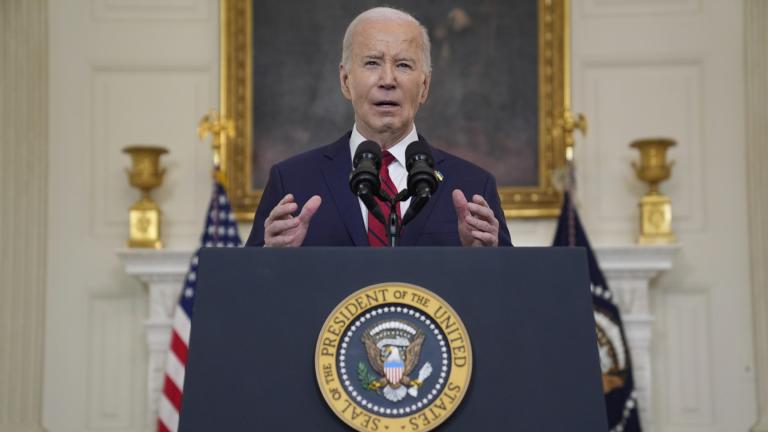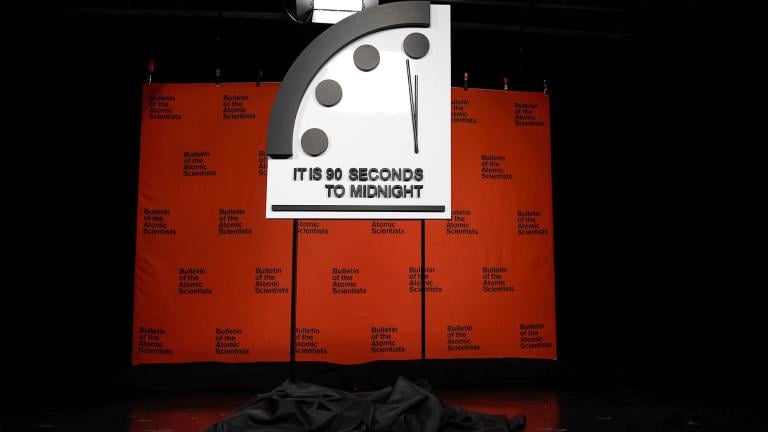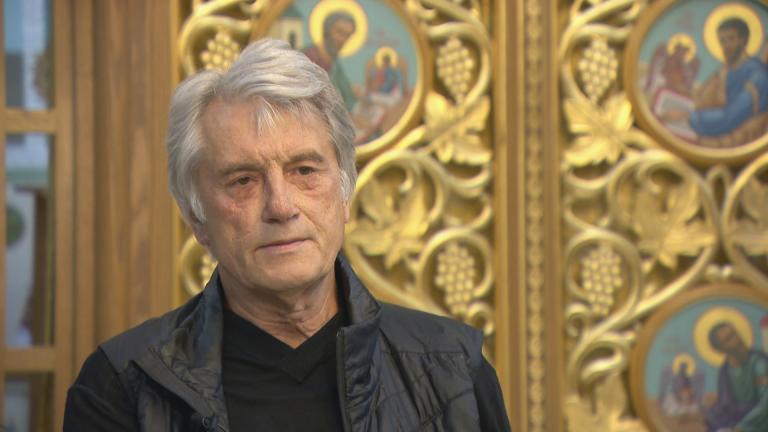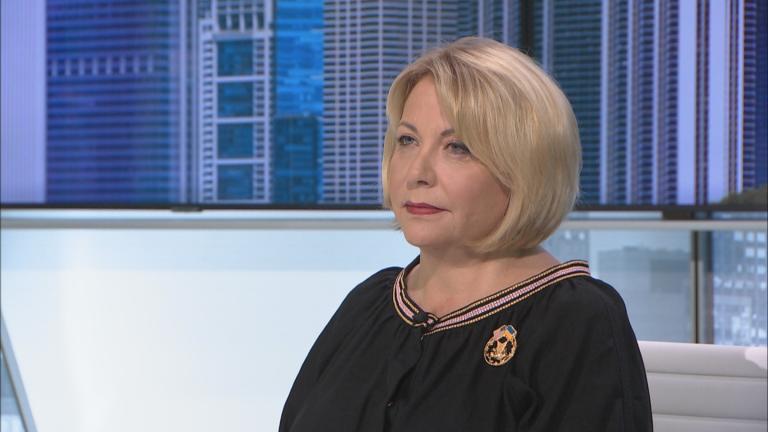Meet 20-month-old David Sterling.
Hobbies include a good round of “The Wheels on the Bus" and “hiding" from his parents, though, in plain sight.
As much fun as parents Jeff Sterling and Lilac Epstein have with their son today, the couple struggled for years to have David at all.
“He is the love of our lives,” Epstein said, while wiping tears, in the living room of their Highland Park home. “We spent seven years doing fertility treatments because we both have health problems. After seven years and ten doctors, two countries, we decided to go the route of a surrogate.”
David was born via surrogate in Kyiv, Ukraine at the height of the pandemic in the summer of 2020.
While Jeff is his biological father, he and Lilac also have the help of a separate egg donor.
What’s more, this little guy is going to be a big brother: Lilac and Jeff are expecting twin girls this summer, also via surrogate in Ukraine.
“We’re terrified. Because things seem to change moment to moment and there’s a time zone difference on top of that, we’re up all hours of the day and night,” Epstein said.
In the last five years, Ukraine has emerged as the second-most popular destination for surrogacy, only behind the United States, according to Australian-based non-profit Growing Families, which estimates around 1,500 babies are born each year to Ukrainian surrogates for foreign couples. The group also estimates 950 Ukrainian surrogates are currently carrying babies for intended parents in other countries.
Global Director Sam Everingham said in an email to WTTW News that the group is assisting with ten infants who’ve been born in Ukraine and need birth certificates, travel documents and safe passage out of the country. There are another 95 cases on their support list, with surrogates in various stages of pregnancy.
“[That is] in part because some of the nations that had had a lot of surrogates, like India and Nepal, outlawed surrogacy, made it illegal. Most of Europe has outlawed it in some form or another,” said UIC Law professor Sonia Bychkov Green. Green was born in Russia and immigrated to the U.S. as a child with her family. She also teaches a seminar on assisted reproductive technology.
The difference in cost in another reason couples choose Ukraine.
“And it’s still not cheap, it’s still so expensive: about $40,000 or so, all told for a surrogate in Ukraine, versus easily over $100,000 for a surrogate here in the U.S.,” Green said.
But, as the Russian military bombards Ukraine, intended parents in the U.S. and other countries await word, hoping their surrogates and babies are safe — a difficult task as images pour in of babies born to surrogates cared for in basements and bunkers, hiding from Russian bombs, a world away from their intended parents.
“We don’t know how things are going to be tomorrow, or next week or three months from now when our surrogate is ready to deliver. There are a lot of unknowns, uncertainties,” Sterling said.
Lilac and Jeff say they are thankful their agency, World Center of Baby, has been communicative, keeping them posted on their surrogate’s safety, even putting them in touch with her directly.
We caught up with one of the team members, now running operations in Cyprus.
“Can you imagine, surrogacy on its own is such a difficult and anxious process because someone else is basically carrying your child for you and they’re far away and you have no control of what’s happening?” said Olga Pysana via Zoom. “And then all of this happening at the time of war, when there’s constant shelling, bombs exploding. So, for intended parents, this is a horrible, most horrible time for them.”
While more than three-million Ukrainian refugees have fled the country, that’s not so easy for a surrogate mother.
“There might just be physical reasons why they can’t. It might just be harder to move quickly, or be in a crowd,” says Green. “You read about people who have to wait in line for 24 hours without food or water and you can’t do that if you’re pregnant.”
Additionally, surrogate women already have their own children and families to consider. Because Ukraine has banned men ages 18 to 60 from fleeing the country, surrogates who are able to leave would have to do so without their husbands.
Legally, not every nation recognizes surrogacy as Ukraine does. So, if a surrogate mother delivers in another country, the baby’s intended parents may not be named on the infant’s birth certificate, setting up an international court struggle.
When David was born, Lilac and Jeff were able to make plans to head to Kyiv to await his arrival. This time the twins are due in July, and it’s uncertain where their surrogate will deliver. They’ve been able to communicate with her via WhatsApp and Google translate.
The couple remain hopeful for their surrogate’s safety, and thankful for the gifts she’s giving them which — despite the costs — they say are priceless.
“David’s surrogate told us she loves having children and wanted to provide that to another family. She had four prior to David,” Epstein said. “She made us a family.”
Follow Brandis Friedman on Twitter @BrandisFriedman








